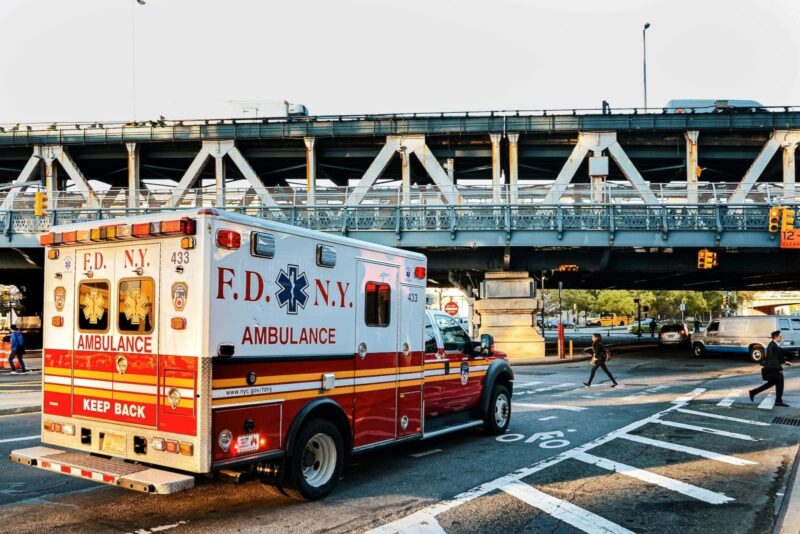
Any travel insurance policy has a lot of pieces to it, and sometimes the legalese terminology can be difficult to understand. The most important thing to understand is what is covered, and what isn’t. After all, you want to know what you’re paying for, right?
There are many varieties of travel insurance; essentially, they all just mix and match different coverages. Here are the most common things that a plan covers, and how that coverage works.
Trip Cancellation Coverage
If you have a lot of prepaid nonrefundable trip costs, the idea of having to cancel your trip can be scary. You’ve put hundreds or thousands of dollars into your upcoming trip, and you would lose all that money if your travel plans change.
Life happens though, and there’s always a chance that you get sick, a natural disaster happens, your house floods, you get called in for jury duty, or something else bad happens that causes you to cancel your trip.
That’s where trip cancellation coverage comes in. If you have a travel insurance plan, you can file a claim, and the company will refund the total trip cost.
Yep, that’s pretty cool.
It’s important to know that you can’t just cancel for any reason you want and expect to have your trip’s price refunded. Most insurance policies only pay out reimbursements for a “covered reason.” Covered reasons include things like serious illness to yourself or a family member, losing your job, a natural disaster or terrorist attack in your destination, or other unpredictable events.
Reasons that aren’t covered typically include things that could be predicted ahead of time, like ongoing civil and political unrest, severe weather due to a predicted tropical storm, or “because I want to.”
Also, cruises are not always covered under typical trip cancellation insurance, so make sure your plan covers cruise lines if that’s what you need.
Cancel For Any Reason
If you want the greatest peace of mind, you’ll want to look for Cancel For Any Reason (CFAR) coverage. CFAR is exactly what it sounds like, you can cancel your trip for any reason, and the insurance company will pay you for any non-refundable expenses from hotel stays, flights, and more.
Just know that CFAR insurance costs more.
Trip Interruption Coverage
Trip interruption is similar to trip cancellation insurance, but it covers travel expenses in case you have to cut your trip short after you’ve already departed (while trip cancelation is for before you leave).
Trip interruption coverage typically has similar rules and limits, so you can just think of it as an extension of trip cancellation.
Good trip interruption coverage also includes coverage for travel costs to return home. That’s a great benefit so you don’t have to pay your own way home if anything goes wrong.
Trip Delay Coverage
Beyond trip cancellation and interruption, comprehensive travel insurance policies also typically have coverage for trip delays. That means they’ll help pay for inconveniences and extra expenses caused by flight delays, cancellations, missed connections, and other delays.
Usually, this is a per-day amount while your trip is delayed to pay for unexpected hotel stays or transport costs to rejoin your trip itinerary.
Medical Emergency Coverage


No one wants to think about having a medical emergency overseas, but it’s always a good idea to be prepared.
In my opinion, emergency medical protection is the most important travel insurance coverage. If you have to pay for a canceled trip, that’s a bummer, but you’ll get over it. If you become seriously ill or get injured on your trip, having insurance to pay for emergency hospital costs can be life-saving. At the very least, it can save you tens of thousands of dollars in medical expenses.
Travel medical coverage will cover costs up to a specific dollar amount stated in the policy. I recommend getting at least $50,000 of coverage, though $100,000 or more is better.
And yes, pretty much every travel insurance policy covers COVID-19 just like any other illness.
Most plans also include accidental death or dismemberment protection. Essentially, this is a sort of life insurance policy that pays out a certain amount if you die or have a disabling injury on your trip. I don’t want to think too much about “accidental death or dismemberment” either, but it’s good to know it’s there.
Pre-Existing Conditions
Many travel insurance plans have strict limits regarding previously existing medical conditions. If you have a condition like diabetes, heart disease, or some other chronic illness, it may not cover related healthcare costs.
If you have a chronic condition, I recommend looking for a plan with a pre-existing condition waiver (like the Travelex Select Plan) to make sure you have full coverage.
Secondary vs Primary Coverage
If you’re looking to purchase travel insurance, you may have come across the terms secondary and primary coverage. Those terms sound confusing, but the difference is pretty simple.
- Primary coverage pays for medical bills before anything else.
- Secondary coverage only kicks in after your normal health insurance pays whatever they will cover.
Emergency Evacuation
For severe injuries or illnesses, travel insurance plans typically cover emergency medical evacuation. That can include transport costs to the nearest medical facility or evacuation to your home country for care.
Again, I’d look for the highest coverage limits possible here. Air ambulances can cost into the hundreds of thousands of dollars, and you don’t want to be stuck with that bill.
Baggage Loss or Delay
I have recurring nightmares of losing my checked bag on a long international flight. It hasn’t happened to me yet, but I usually fly carry-on only anyway. Few things sound worse than getting stuck in a foreign country without my personal belongings.
Baggage loss coverage reimburses the cost of lost luggage—up to a specific dollar amount. You will just need to file a claim accounting for the value of the lost personal items.
Many policies will also include coverage for a baggage delay or damage to personal property.
Other Travel Insurance Benefits and Options
Beyond medical protection, trip cancellation insurance, and lost baggage coverage, most travel insurance coverage includes a range of other benefits that either come standard with your plan or that you can add on for an extra cost. Here are some of the most common benefits you may want to look for:
- Rental car insurance in case you scratch up that BMW you rented
- Adventure sports coverage so your medical expenses are still paid for even if you’re participating in “risky” activities like skydiving, skiing, or rock climbing.
- Vacation rental protection, because accidents happen
- Electronic equipment coverage for all you gear-laden photographers
- Cruise and tour operator cancellation coverage, because you don’t want to be stuck with that bill if your trip is canceled.
